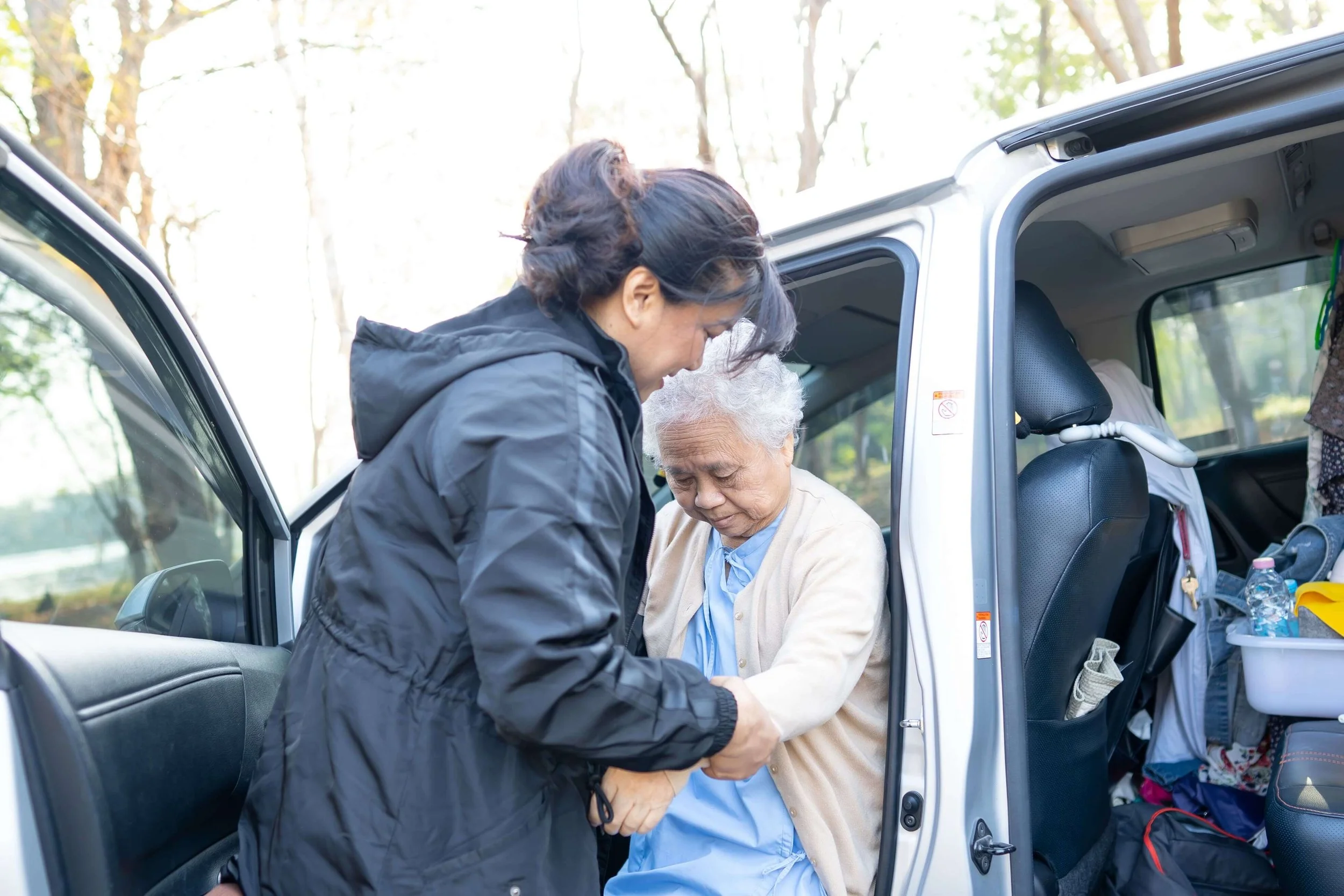How To Prove Elder Abuse In California
Elder abuse is a heartbreaking phenomenon that affects countless people in California each year. From financial exploitation to physical and emotional harm, elderly individuals across the state can be vulnerable to harm through no fault of their own. If you or someone you love has been subjected to elder abuse in California, it's important to understand how to prove it in order to seek justice.
In California, the Elder Abuse and Dependent Adult Civil Protection Act (EADACPA) was enacted in order to provide additional protections for those who are vulnerable to abuse due to age or disability. This law allows victims of elder abuse to take legal action against their abuser in order to seek justice and compensation for their suffering.
This article will explore what elder abuse is, the elements required for a successful claim, and when and how to file a claim for this devastating form of mistreatment. So if you're looking for help understanding how to prove elder abuse in California, read on.
Definition and Types of Elder Abuse
Elder abuse refers to any intentional harm inflicted on an older adult, typically aged 60 or above. It can take many forms, including physical, emotional, sexual, and financial abuse, as well as neglect and abandonment.
Physical abuse involves the use of force or violence, such as hitting, pushing, or shaking an older person, causing injuries or pain. It can also involve inappropriate use of restraints, confinement, or depriving them of food or water.
Emotional abuse is any behavior that causes distress, mental anguish, or fear in an older adult. This includes verbal abuse, such as yelling or belittling, as well as social isolation or confinement from friends and family.
Sexual abuse involves any form of unwanted sexual contact, coercion, or exploitation of an older person. It can take the form of rape, sexual assault, or molestation.
Financial abuse involves exploiting an older person's financial resources, property, or assets for personal gain. This can include theft, fraud, scams, or coercion to sign legal documents.
Neglect occurs when a caregiver fails to provide basic necessities such as food, shelter, medication, or hygiene. It can also include leaving an older person alone for extended periods or not providing adequate supervision.
Abandonment is the desertion or forsaking of an older person by a caregiver or family member.
It is important to note that elder abuse can occur in any setting, including the home, nursing homes, assisted living facilities, and hospitals. Older adults who are isolated, frail, or have cognitive impairments are particularly vulnerable to abuse. Recognizing the signs of elder abuse and reporting any suspected cases are crucial in preventing and addressing this serious issue.
Elder Abuse in California
According to data from the California Department of Justice, in 2020, there were over 14,000 reported cases of elder or dependent adult abuse in the state. Of those cases, the most common form of abuse was financial abuse, accounting for nearly 60% of reported cases.
Physical abuse was the second most common type, followed by neglect, emotional abuse, sexual abuse, and abandonment. Unfortunately, experts believe that these statistics are just the tip of the iceberg, as many cases of elder abuse go unreported. Elder abuse can have devastating consequences on the health and well-being of older adults, underscoring the need for increased awareness, prevention, and intervention efforts.
If you suspect elder abuse in California it is important to report it immediately to the authorities so that they can take appropriate action and protect your loved one from further harm.
Elder Abuse & Dependent Adult Civil Protection Act (Code 15610)
The Elder Abuse and Dependent Adult Civil Protection Act (EADACPA) is a California statute that affords legal protection to elderly and dependent adults who have suffered abuse, neglect, or exploitation.
Under the EADACPA, a "dependent adult" is defined as an individual between the ages of 18 and 64 with physical or mental impairments that limit their ability to perform daily tasks or who has a disability that necessitates the assistance of others. The law mandates that certain professionals, such as healthcare providers and social workers, report suspected cases of elder or dependent adult abuse to law enforcement agencies.
The EADACPA also provides victims with civil remedies, including restraining orders and financial restitution. The legislation is geared towards safeguarding some of society's most vulnerable individuals and holding perpetrators of elder and dependent adult abuse accountable for their misconduct.
Take Legal Action for Elder Abuse in California
For those who have experienced elder abuse in the state of California, legal action may be taken to help protect their rights and seek justice. To begin this process, it is best to contact an attorney who specializes in elder abuse cases.
An experienced attorney will be able to evaluate the situation and advise on the best course of action. Depending on the nature of the case, they might suggest filing a civil lawsuit, a criminal complaint, or even filing for a restraining order against the abuser. Additionally, they can provide guidance on any available resources that may assist with medical expenses or other costs associated with dealing with the abuse.
Taking legal action for elder abuse can be intimidating but taking steps to protect one's rights is essential in seeking justice and holding abusers accountable.
Elements Required to Prove Elder Abuse in California
Many cases of financial elder abuse in California require evidence in order to be successful. The plaintiff must prove four elements in order to prove that the defendant violated California's elder abuse statute.
1. First, they must show that the defendant was 65 years old or older when the alleged abuse occurred.
2. Second, they must demonstrate that the defendant was actually a relative, caretaker, or fiduciary of the elderly person.
3. Third, they must show that the defendant committed fraud, coercion, or unduly influenced the elderly person to gain access to their property.
4. Lastly, they must demonstrate that there was an intentional taking and retention of the property without any intent to return it. In addition to these elements, witnesses and supporting documents can help strengthen a case for financial elder abuse.
It is important for anyone considering filing a financial elder abuse claim in California to consult with an experienced attorney who can help them best prove their case.
When To File a Claim for Elder Abuse
When it comes to filing a claim for elder abuse, the earlier the better. It is important to take action as soon as possible in order to ensure that the abuser is held accountable and that justice is served.
In California, victims of elder abuse have up to three years from the time of the incident or discovery of the abuse to file a civil lawsuit. However, it is best to contact an attorney sooner rather than later so they can advise on the best course of action and provide guidance on any available resources. Additionally, an attorney can help with gathering evidence and filing paperwork in a timely manner, which may be necessary in order for a successful outcome.
Taking legal action for elder abuse can be overwhelming but having an experienced attorney on your side will make this process much easier.
What Kinds of Claims Can Be Filed for Elder Abuse?
Each type of abuse can result in different claims, damages, and remedies.
For instance, physical abuse claims may include medical expenses, pain and suffering, and punitive damages.
Financial abuse claims may involve recovering damages for the loss of money, property, or assets, as well as attorney's fees and costs.
Claims for emotional abuse may include damages for mental anguish, distress, or loss of enjoyment of life.
Neglect and abandonment claims may involve damages for medical expenses, relocation costs, and other losses.
It is essential to work with an experienced elder abuse attorney who can help determine which claims to pursue and the appropriate damages and remedies to seek in your case.
How Peck Law Corporation Can Help
At Peck Law Corporation, we understand how challenging it can be to cope with elder abuse, whether it is happening to you or a loved one. That is why we offer the services of experienced elder abuse attorneys to assist you in navigating the legal process and pursuing justice.
Our attorneys have a deep understanding of elder abuse laws and regulations in California, and are dedicated to protecting the rights of older adults and dependent adults who have been abused or neglected.
Our firm has a proven track record of success in handling elder abuse cases, and we have the resources and expertise to hold abusers accountable and secure compensation for victims.
We provide personalized attention and compassionate representation to our clients, and we will work tirelessly to ensure that you receive the justice and compensation that you deserve. If you or a loved one have been a victim of elder abuse, contact us today for a free consultation.
Contact An Experienced Elder Abuse Lawyer Today
Elder abuse is a serious crime in California, and proving it can be a complicated process that requires the help of an experienced elder abuse lawyer. To prove elder abuse, one must provide evidence that the victim suffered harm or injury as a result of neglect or intentional abuse.
If you or a loved one has been a victim of elder abuse, it's important to act quickly and get in touch with a knowledgeable and compassionate attorney who can help you understand your legal options and fight for your rights. Our team here at Peck Law Corp is dedicated to protecting the rights of elders and has the experience and resources necessary to hold abusers accountable.
Contact us today at Peck Law Corp today for a consultation with an experienced elder abuse lawyer.



